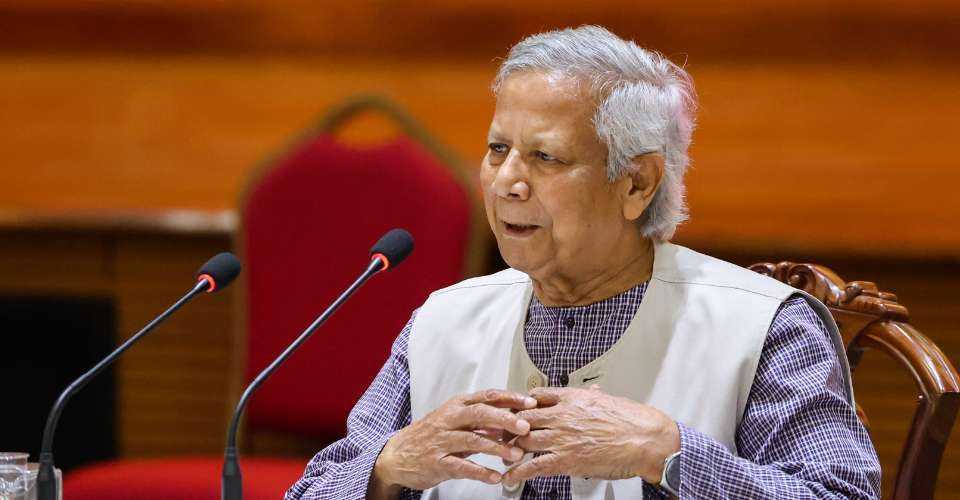 Leaders from religious groups joined a special dialogue program with the head of Bangladesh’s interim government and vowed to uphold national unity and harmony amid ongoing diplomatic tension between Dhaka and New Delhi over alleged minority repression.
Leaders from religious groups joined a special dialogue program with the head of Bangladesh’s interim government and vowed to uphold national unity and harmony amid ongoing diplomatic tension between Dhaka and New Delhi over alleged minority repression.
Nobel Peace Prize winner Professor Muhammad Yunus, the chief adviser of the interim government, held the program with leaders representing Islam, Hinduism, Buddhism, and Christianity, at the Foreign Service Academy in the capital Dhaka on Dec. 5.
“There is some level of tension amid some provocative media campaign outside Bangladesh on religious repression in Bangladesh. This is a sensitive time. We all need to have unity and patience,” said Catholic priest Albert Thomas Rozario, parish priest of St. Mary’s Cathedral in Dhaka, who joined the program.
A Supreme Court lawyer and chairman of Bangladesh Christian Lawyers’ Association, Rozario said he appealed Yunus to take initiatives to heal the wounds created by recent political upheavals.
Police stations, establishments of former Prime Minister Sheikh Hasina’s supporters, and minorities, especially Hindus, came under attack since Hasina fled to India on Aug. 5 following a bloody student-led mass uprising.
The arrest of a Hindu leader, Chinmoy Krishna Das, on Nov. 25 even sparked tensions between Bangladesh and India.
Das, a leader of the newly formed Hindu group Sommilito Sanatani Jagaran Jote, was arrested on sedition charges.
The denial of his bail by a court in Chattogram, the country’s second-largest city, triggered protests in Bangladesh and India.
On Nov. 26, Bangladeshi supporters of Das clashed with security forces, leaving a Muslim lawyer, and a public prosecutor, dead and several others injured.
A day after the arrest, India’s Ministry of External Affairs issued a statement expressing “deep concern” over the matter.
In response, Bangladesh’s foreign ministry issued a statement, rejecting India’s concerns as “baseless.”
Yunus’ Press Secretary Shafiqul Alam said many of the attacks against Hindus were linked to political and personal interests, not communal in nature.
Diplomatic relations soured further on Dec. 2, when Indian protesters, reportedly rightwing Hindus, attacked Bangladesh’s Assistant High Commission building in Agartala of Tripura state and burnt the Bangladesh flag in front of Bangladesh Deputy High Commission in Kolkata, West Bengal state.
Following these events, Professor Yunus held a series of dialogues with the political parties, student leaders and faith leaders, calling for national unity, religious harmony and patience.
On Dec. 5, he sought advice from religious leaders on how to collect free and truthful information on the problems of minorities.
“Traditionally, people of all faiths in Bangladesh live in harmony. The recent events have created some tension,” Rozario said, adding that he requested Yunus to have a dialogue with faith leaders regularly to address their concerns and ensure all cases of persecution see justice.
He said due legal procedure should be followed in the case of Das.
Avinash Mitra, assistant secretary of Ramna Harichand Temple in Dhaka said that news about repression of minorities is largely untrue.
“Those of us living in Bangladesh have no division. There are people outside the country trying to create division through propaganda,” he told journalists after the dialogue program.
“We do not want them to have personal gains through propaganda. We are united here,” he added.
About 90 percent of Bangladesh’s more than 170 million population are Muslims, according to official data. About 8 percent are Hindus and the rest belong to other faiths including Buddhism and Christianity.
source : uca news
